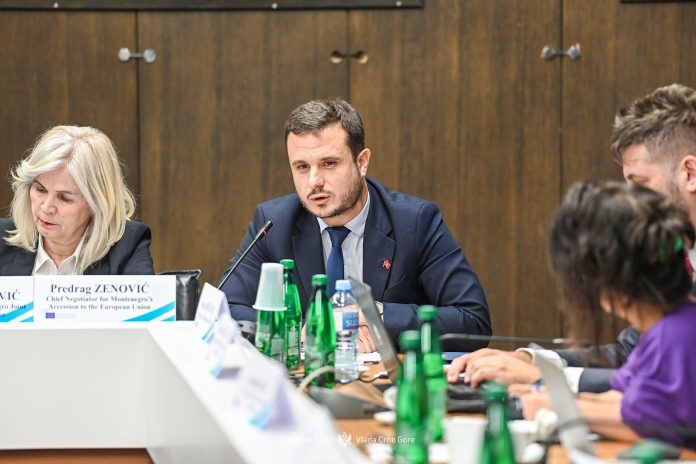Chief Negotiator of Montenegro with the European Union, Predrag Zenović, stated that he expects the Parliament of Montenegro to urgently proceed with all laws that have been reviewed and proposed by the Government of Montenegro.
“A very important Government session was held yesterday, which was thematic and dedicated to laws related to meeting the benchmarks in Chapters 23 and 24. In this regard, the Government has determined the proposals for amendments and additions to the Law on the Confiscation of Property Acquired through Criminal Activity, the Law on the Prevention of Corruption, the Law on the Judicial Council and Judges, and the Law on the Special State Prosecutor’s Office. Additionally, last week the proposal for the Lobbying Law and amendments to the Criminal Procedure Law were determined. This entire legislative package is a prerequisite for Montenegro to meet the provisional benchmarks. Now, of course, the rest of the legislative process remains, which pertains to the Parliament, where these laws or amendments should be adopted,” Zenović said while appearing on the TVCG program “Link.”
Responding to the question of when he expects these laws to be brought before the Parliament and whether they will be marked as urgent, Zenović emphasized that Montenegro does not yet have a model similar to what other candidate countries had during their EU accession processes. However, there are laws that can go through the legislative process urgently, and in this regard, he expects the Parliament of Montenegro to proceed with all these laws that have been reviewed and proposed by the Government.
Zenović highlighted that there is a consensus on the importance of Montenegro’s European path and a clear political will expressed by all relevant political actors.
“I believe this is a good signal to the Government of Montenegro, confirming that this entire process will proceed in the best possible order and that these law proposals will be adopted. The other reason is that these laws pertain to very important areas of the judiciary, the fight against organized crime and corruption, and the prevention of corruption, which are vital for any community. Particularly, these laws have undergone scrutiny and analysis by the Venice Commission, a specialized body of the Council of Europe, as well as the European Commission. Therefore, they have received the green light for adoption from the highest possible instances,” Zenović concluded.


